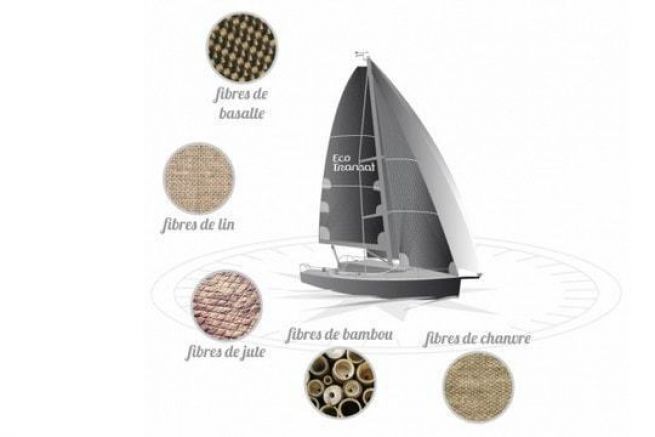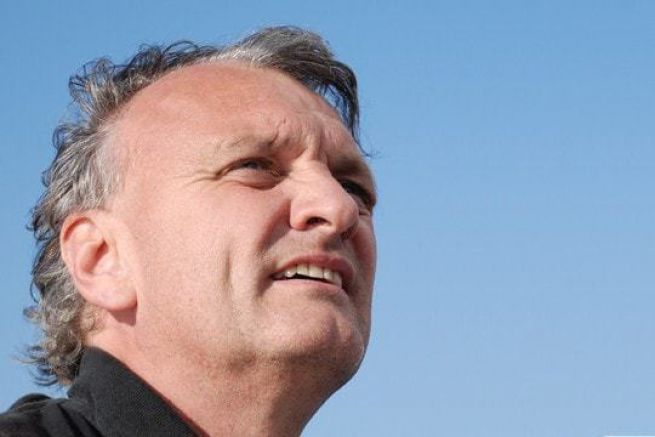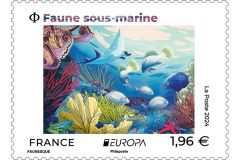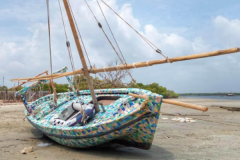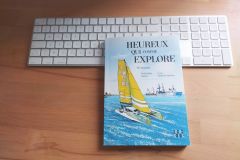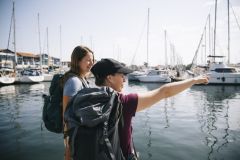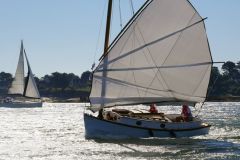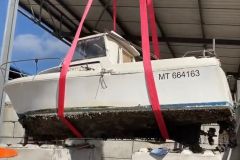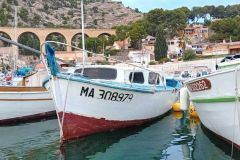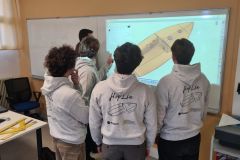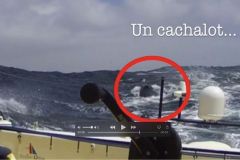Eco-Transat is the ambitious project of the Association Déferlante Océane, which consists in making sailboats out of natural fiber (vegetable fiber and bio-sourced resin). An idea already tempted by some, like Gwalaz, Roland Jourdain's flax fibre trimaran, or Tara Tari or Gold of Bengal, Corentin Chatelperron's jute fibre sailboats, or even Fipofix, a basalt fibre sailboat?
But the ambition of this project goes further: to create a shipyard, in the form of a cooperative (social enterprise) dedicated to eco-design. And it was on the basis of the following reflection that Eco-Transat was born "Why is sailing, the most environmentally friendly mode of travel, done on boats that are not environmentally friendly and are not very recyclable at the end of their life?"
Six boats, six materials
The first prototype - the "standard boat" - is currently under construction at Grau du Roi, built at 2/3. Called Sterne 25, it was designed by the architect Guillaume Calestroupat, according to the plans of the members of the association. Built in wood, she will first serve as a mould for the 5 other sailing boats built in recyclable and biomaterials, before being transformed into a navigable sailboat alongside her sisterships and taking part in the Eco-Transat raids.
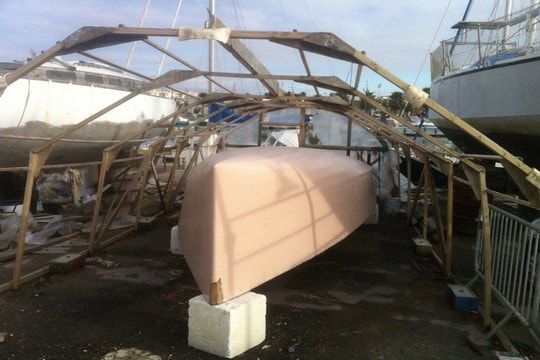
Between now and the end of 2017, the association has set itself the ambition of building 5 more prototypes in bio-sourced composite materials, based on natural fibres: flax, hemp, basalt, jute and bamboo wood fibres.
Support from the Ecole des Mines d'Alès School of Mines
In order to build its eco-designed sailing boats, the association collaborates with engineering students from the Materials Centre of the Ecole des Mines d'Alès. They will carry out laboratory tests and are also working on the creation of bio-sourced resins, which does not exist today.
Life size tests
Two adventure raids will be organised, one around Europe and the other across the Atlantic, to confront the natural fibres, from the six prototypes, to all the seas, and to demonstrate the reliability and quality of these new yachts.
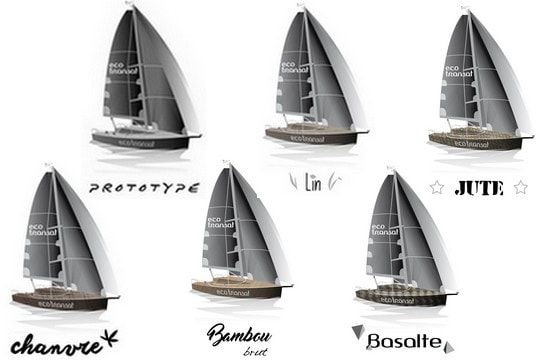
For two years (2018-2019), two sailors per boat will sail around Europe in 14 legs and one transatlantic to Brazil. Together, these two raids will cover nearly 120,000 miles (40,000 km)
Answering 3 problems of boating
- Ecological: Faced with the impact of shipwrecks that break up in ports (20,000 per year in France), build eco-designed sailing boats that are ultimately entirely ecological.
- Economic: Launching a shipyard, an industrial tool that creates jobs and is part of a coastal economy with strong potential.
- Social: This project contributes to re-democratize the practice of sailing by making accessible to the greatest number of sailboats at reasonable costs.
A collaborative project
At the head of this project is Gilles Melon, president of the association Déferlante Océance. Anyone who has spent two years sailing and rounded Cape Horn has more than 35,000 miles on his or her odometer. This boat enthusiast has also visited shipyards from La Rochelle to Port Camargue, via Bordeaux. He is now working on preparing Kito de Pavant's boat for the 2016 Vendée Globe.
Pierre-Julien is the vice-president of the association, but also a graphic designer by training and now working in sailmaking. As a technician in sailboat construction, he brings his dual skills to the project.
Michel Dupoirieux is a specialist in setting up collaborative projects. The former director of the Union régionale des Scop (Cooperative and participative societies) Languedoc-Roussillon is also passionate about the sea, aboard his shared sailing boat.
However, some great sailors are also supporting the project, notably Kito de Pavant (taking part in the Vendée Globe) or Jérôme Poncet, an adventurer in the South Seas, is known as the "Ice Pope".
Help them finance their project
After having already financed more than 40,000 euros from the equity of its initiators, EcoTransat is looking for 30,000 euros to "complete" the first sailing boat prototype. Thanks to a participatory fundraising campaign (crowfunding) organised on the Zeste platform, the association hopes to raise awareness among all the people and organisations likely to be involved in this project for the future, at the crossroads of the world of sailing, technology, ecology and socially innovative economy.

